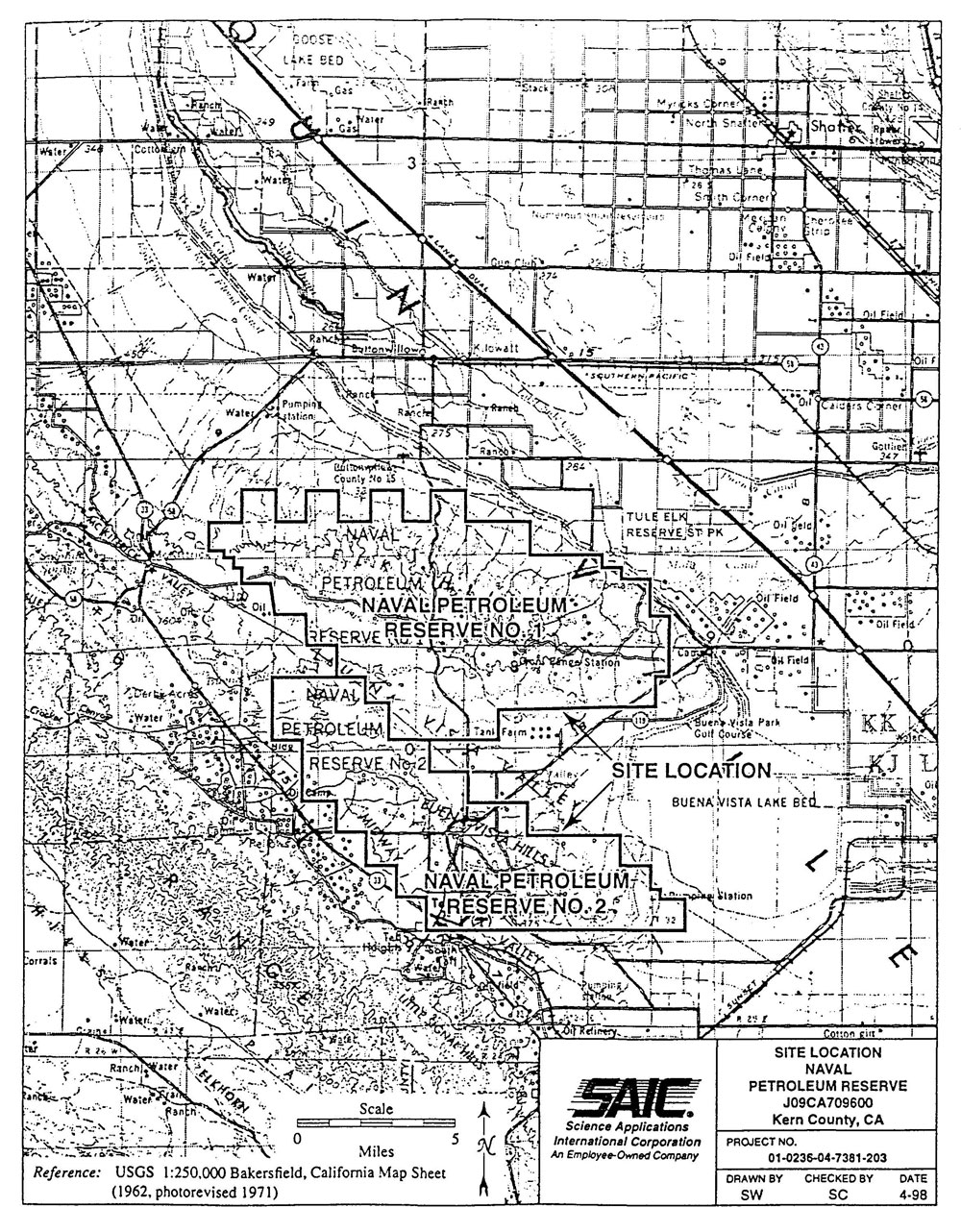Location: The Naval Petroleum Reserve consists of Reserve No. 1 (NPR-1) and Reserve No. 2 (NPR-2). NPR-1 is located in the Elk Hills, east of McKittrick, Kern County, California, within an area bound to the south by Highways 33 and 119 and to the north by Highway 58. NPR-2 is located in the Buena Vista Hills, immediately north and east of Taft, Kern County, California,
within an area bound by Highway 33 to the west, Gardner Field Road to the south, Buena Vista Lake to the east, and NPR-1 to the north.
Site History: NPR-1 and NPR-2 were established by Presidential Executive order on 2 September 1912 and 13 December 1912, respectively. Order 4614, dated 17 March 1927, committed the care and custody of the reserves to the Navy. The Navy, in a partnership with Standard Oil Company (on NPR-1), developed oil and gas resources on the property as a buffer for oil supplies required for naval vessels and other national security measures.
units, a gas processing facility, shipping units, roadways, and landfills.
In 1976, the DOD's interest in NPR-1 and NPR-2 was transferred from the Navy to the Department of Energy (DOE), however, the Navy maintained a partial administrative and operational
involvement at the reserve through 1998.
The Navy developed oil and gas resources on the property as a buffer for national security. Navy improvements on NPR-1 and NPR-2 consisted of oil and gas drilling and production equipment, including drilling rigs, pump jacks, storage tank farms, pipelines, shipping units, compressor stations, heating units, a gas plant, roadways, and landfills. In 1944, the Navy entered a joint agreement with Standard Oil Company, pursuant to a Unit Plan Contract, for development of NPR-1. Under this agreement, the Navy and Standard Oil shared expenses and profits, with the Navy controlling production and maintaining a 74% interest and Standard Oil operating the field and receiving a 26% interest. The Navy's controlling interest in the reserve fluctuated from 1944 to 1998.
In October 1976, ownership of the DOD's interest in the NPR, consisting of 47,595 acres, was transferred through means unknown from the Navy to the Department of Energy (DOE) . Records referring to the transfer of ownership were neither specific nor complete. From 1976 until February 1998, the Navy maintained a partial administrative and operational presence at NPR-1 and NPR-2. In February 1998, DOE sold their holdings of NPR-1 (78% of the reserve) to Occidental Petroleum, and the Navy terminated its function at NPR-1 and NPR-2. The reserve continues to be operated as an oil and gas field. NPR-1 is currently owned and operated by Occidental Petroleum and Chevron U.S.A. (formerly Standard Oil), whereas NPR-2 is currently owned by the DOE and partially leased to several oil companies for oil exploration and production. Beneficial use of Navy improvements include use of all of the oil drilling and production equipment described above. Navy improvements remaining which may not have been used include unspecified oil exploration and production equipment
